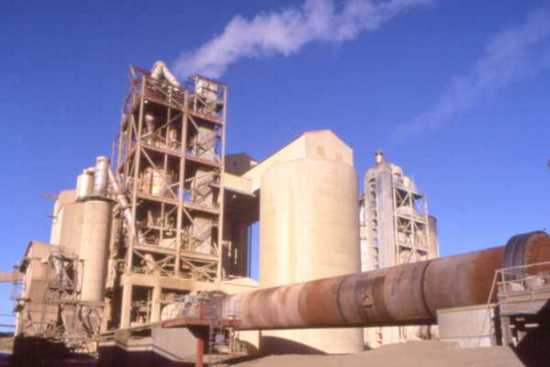
Shown above: a cement kiln and heating tower (photo: Castle Cement)
The November 15th, 2021 trade report with L.C.
The US and Japan are moving closer to an agreement in the dispute over the US Section 232 steel and aluminum tariffs. US Trade Representative Katherine Tai and Commerce Secretary Gina Raimondo released a joint statement on November 12 announcing the “start of consultations” with Tokyo on steel and aluminum trade.
Raimondo: domestic protectionism comes first
In theory, a settlement could come as early as this coming week when both Ambassador Tai and, on a separate trip, Secretary Raimondo will be in Tokyo. But Raimondo has thrown a damper on expectations for such a quick deal. In an interview in Chicago early last week, she said that while a Section 232 resolution could come “reasonably soon” with Japan and the UK, just how soon isn’t known — nor whether it would include a tariff rate quota (TRQ). She added that she’ll “take the same approach” as in her talks with the EU, “which is, yes, we want to work with our allies and remove trade irritants; however, we have to protect the steel and aluminum industry… and workers.” That rules out any simple US lifting of the tariffs, which the domestic steel-producing sector would object to.
Revealingly, Raimondo told her interviewer that she hasn’t even begun discussing the tariffs with India and Turkey and then added that the EU was the first priority since the administration wanted to avert the planned doubling of its retaliatory tariffs. That suggests that Japan was a second-tier priority because it didn’t retaliate, thus giving it less leverage with Washington.
Administration’s trade policy out of sync with Indo-Pacific strategic policy
Tokyo has been pressing Washington hard for over three years for removal of the offensive “national security” tariffs. Prime Minister Shinzo Abe pushed President Trump unsuccessfully on the matter as soon as they were imposed. It would be a significant disappointment in both countries if the upcoming talks fail. Most of the US private sector has long demanded an end to the tariffs. But the talks are more likely to simply result in reports of progress and agreement to continue the negotiations.
Both sides have strong incentives for ending the tariffs in their current form. For the Biden administration, it is of strategic importance as it turns its attention from Europe to the Indo-Pacific and as Beijing expands its own trade-agreement efforts. Members of Congress are becoming increasingly alarmed that the administration, despite its talk, hasn’t done enough to strengthen economic relations with Asian allies while China is seeking to join the CPTPP and DEPA and is about to implement the RCEP.
Domestic inflation, developing country industrial needs being neglected
But reaching a deal with Japan is also important domestically because the administration is under attack for not doing anything to fight inflation, and the tariffs, while limited in impact, have forced up the price of many domestically-made goods. The US-EU deal was accepted by the US steel-producing industry and its union, so presumably there wouldn’t be political pressure against a similar deal with Tokyo that would benefit the White House by being anti-inflationary.
But for India, Turkey, and other developing-sector countries, both the US-EU trade deal and the just-concluded Glasgow COP26 conference represent an unwanted threat against their plans to industrialize and raise the standard of living of their populations to the level presently enjoyed by the developed sector. For this, a domestic fossil-fuel-guzzling heavy-industry base is essential to manufacture needed cement, steel, aluminum, and chemicals. Coal and other fossil fuels are also needed for electrification.
Although the Glasgow conference was a flop from the standpoint of its most aggressive promoters, including the Biden administration and EU – “COP26 Caves on Coal – ‘Phase Down’ Rather than ‘Phase Out’,” as one headline put it – some see a global trade war as likely to emerge from the US-EU agreement to impose “new tariffs and other restrictions on ‘dirty’ steel and aluminium.” While China is the main target of the US-EU carbon border adjustment (CBA) plans, developing countries rightly worry that they may be the collateral damage.
L.C. reports on trade matters for business as well as Founders Broadsheet.

Leave a Reply